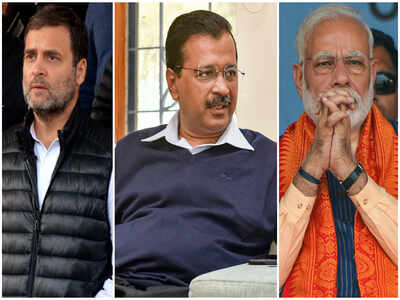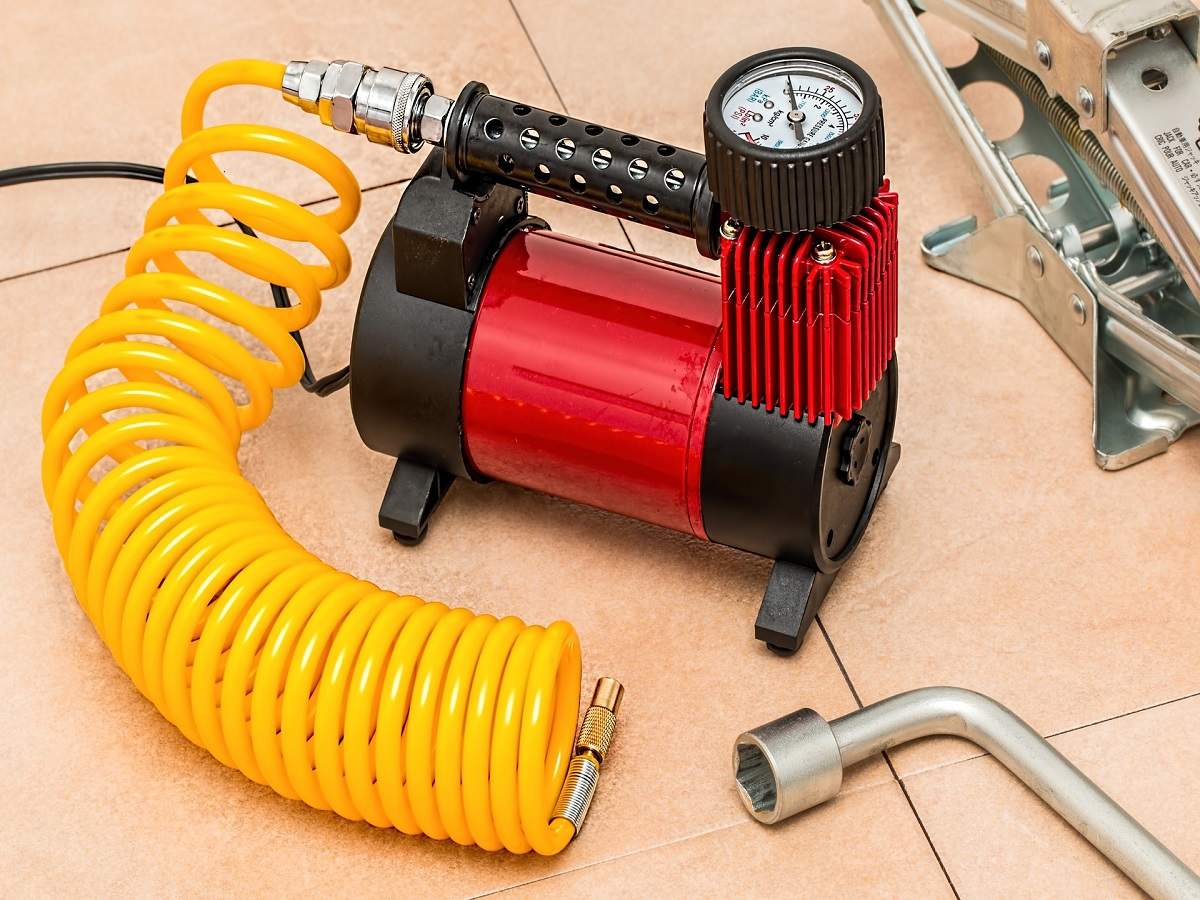
Voting for 2020 Delhi assembly election will be held on February 8, 2020. Voters will be able to cast their votes starting 7 am. The results will be announced on February 11, 2020. The current Delhi assembly expires on February 22. Exit polls can be declared only after the voting ends at 6 pm on Saturday.
Here is all you need to know about Delhi polls:
Delhi's electorate
Over 1.47 crore people will vote for the high voltage elections in Delhi. Voters in various categories include males (81,05,236), females (66,80,277), service voters (11,608), third gender voters (869), and senior citizens (aged 80 and above) voters (2,04,83).
Delhi poll statistics
There are 13,750 polling booths, besides one auxiliary booth, located at 2,689 locations across Delhi. Around 190 companies of Central Armed Police Forces (CAPF) will be deployed as part of the security measures. This is nearly four times the number of CAPF personnel deployed during the 2019 Lok Sabha polls, said EC officials.
Polling booths to be under CCTV surveillance
The Election Commission will keep polling stations marked as “critical” under direct surveillance. CCTV cameras have been installed at all polling stations, but live feed from critical polling stations will be closely monitored at the surveillance room set up in the office of chief electoral officer (CEO) of Delhi. Barring the voting enclosure, all other areas of the polling booth will be under constant watch of CCTVs. Officials said there are over 3,700 critical booths at 516 polling stations.
Pick and drop facility for voters
EC will also monitor the movement of teams deployed to provide “pick and drop” facility to about 4,000-odd voters who are disabled or aged above 80. Special teams will go to the houses of the registered voters at the scheduled time to pick them. After voting, they will be dropped back home.
Delhi Metro to start early
Delhi Metro will start running from 4 am, an hour and half ahead of its normal time so that staff on election duty can reach their destinations on time.
Main contenders
Since the entry of Aam Aadmi Party (AAP) in Delhi's electoral politics, the capital has witnessed a three-way fight among BJP, Congress and the AAP. In 2015 assembly elections, AAP won with a landslide victory sweeping 67 out of 70 assembly seats. The BJP won three seats while the Congress drew a blank. The three political parties continue to remain the frontrunners in the capital.
Number of seats being contested by various parties
While AAP will be contesting alone on all 70 seats of the Delhi Assembly, BJP will contest on 67 seats and its ally Janata Dal United and Lok Janashakti Party (LJP) will fight on the remaining 3 seats. Similarly, Congress will fight on 66 seats and its ally Rashtriya Janata Dal (RJD) will fight on the remaining 4 seats.
AAP seeks a second term
In 2020, AAP continues to remain a strong contestant riding on the development of government schools, new mohalla clinics along with free water and electricity. With Arvind Kejriwal seeking a second term as chief minister of Delhi, AAP leaders have maintained that this election in Delhi will be about the work done by the AAP government. The party has also tried to stay away from the Shaheen Bagh protests against the amendments in the Citizenship Act. While Kejriwal came to power in 2015 riding on the anti-corruption movement and the promise to implement the Lokpal, the legislation continues to remain in the cold box.
PM Modi remains the face of BJP's campaign
Meanwhile, for BJP ack of a chief ministerial candidate who can challenge Kejriwal, remains its biggest hurdle in Delhi. BJP continues to make Prime Minister Narendra Modi as its face for Delhi elections and has been persistent in evoking national issues in Vidhan Sabha elections. The BJP has also pulled-in its heavyweights for campaigning in Delhi like the PM, Uttar Pradesh chief minister Yogi Adityanath, Union home minister Amit Shah among others. BJP leaders have also admitted that their prospects in Delhi elections improved due to continuing protests in Shaheen Bagh against the amended Citizenship Act.
Congress counting on improved vote share in LS 2019
Far behind is Congress, for which its only strength seems to be its recent performance in other state elections and its surprise ranking in Lok Sabha elections 2019 in which it stood second to BJP. Congress' vote rose from 15% in 2014 to 22.5% in 2019 Lok Sabha elections which indicates traction with its base of minorities and poorer voters. However, in Delhi, death of its stalwart Sheila Dixit has been a big setback which has left a vacuum in state leadership and lack of a chief ministerial face. Moreover, in the event of a polarised electorate, Congress will have most to lose if voters consolidate on saffron lines.
Here is all you need to know about Delhi polls:
Delhi's electorate
Over 1.47 crore people will vote for the high voltage elections in Delhi. Voters in various categories include males (81,05,236), females (66,80,277), service voters (11,608), third gender voters (869), and senior citizens (aged 80 and above) voters (2,04,83).
Delhi poll statistics
There are 13,750 polling booths, besides one auxiliary booth, located at 2,689 locations across Delhi. Around 190 companies of Central Armed Police Forces (CAPF) will be deployed as part of the security measures. This is nearly four times the number of CAPF personnel deployed during the 2019 Lok Sabha polls, said EC officials.
Polling booths to be under CCTV surveillance
The Election Commission will keep polling stations marked as “critical” under direct surveillance. CCTV cameras have been installed at all polling stations, but live feed from critical polling stations will be closely monitored at the surveillance room set up in the office of chief electoral officer (CEO) of Delhi. Barring the voting enclosure, all other areas of the polling booth will be under constant watch of CCTVs. Officials said there are over 3,700 critical booths at 516 polling stations.
Pick and drop facility for voters
EC will also monitor the movement of teams deployed to provide “pick and drop” facility to about 4,000-odd voters who are disabled or aged above 80. Special teams will go to the houses of the registered voters at the scheduled time to pick them. After voting, they will be dropped back home.
Delhi Metro to start early
Delhi Metro will start running from 4 am, an hour and half ahead of its normal time so that staff on election duty can reach their destinations on time.
Main contenders
Since the entry of Aam Aadmi Party (AAP) in Delhi's electoral politics, the capital has witnessed a three-way fight among BJP, Congress and the AAP. In 2015 assembly elections, AAP won with a landslide victory sweeping 67 out of 70 assembly seats. The BJP won three seats while the Congress drew a blank. The three political parties continue to remain the frontrunners in the capital.
Number of seats being contested by various parties
While AAP will be contesting alone on all 70 seats of the Delhi Assembly, BJP will contest on 67 seats and its ally Janata Dal United and Lok Janashakti Party (LJP) will fight on the remaining 3 seats. Similarly, Congress will fight on 66 seats and its ally Rashtriya Janata Dal (RJD) will fight on the remaining 4 seats.
AAP seeks a second term
In 2020, AAP continues to remain a strong contestant riding on the development of government schools, new mohalla clinics along with free water and electricity. With Arvind Kejriwal seeking a second term as chief minister of Delhi, AAP leaders have maintained that this election in Delhi will be about the work done by the AAP government. The party has also tried to stay away from the Shaheen Bagh protests against the amendments in the Citizenship Act. While Kejriwal came to power in 2015 riding on the anti-corruption movement and the promise to implement the Lokpal, the legislation continues to remain in the cold box.
PM Modi remains the face of BJP's campaign
Meanwhile, for BJP ack of a chief ministerial candidate who can challenge Kejriwal, remains its biggest hurdle in Delhi. BJP continues to make Prime Minister Narendra Modi as its face for Delhi elections and has been persistent in evoking national issues in Vidhan Sabha elections. The BJP has also pulled-in its heavyweights for campaigning in Delhi like the PM, Uttar Pradesh chief minister Yogi Adityanath, Union home minister Amit Shah among others. BJP leaders have also admitted that their prospects in Delhi elections improved due to continuing protests in Shaheen Bagh against the amended Citizenship Act.
Congress counting on improved vote share in LS 2019
Far behind is Congress, for which its only strength seems to be its recent performance in other state elections and its surprise ranking in Lok Sabha elections 2019 in which it stood second to BJP. Congress' vote rose from 15% in 2014 to 22.5% in 2019 Lok Sabha elections which indicates traction with its base of minorities and poorer voters. However, in Delhi, death of its stalwart Sheila Dixit has been a big setback which has left a vacuum in state leadership and lack of a chief ministerial face. Moreover, in the event of a polarised electorate, Congress will have most to lose if voters consolidate on saffron lines.
Download The Times of India News App for Latest India News.
more from times of india news
Get the app









